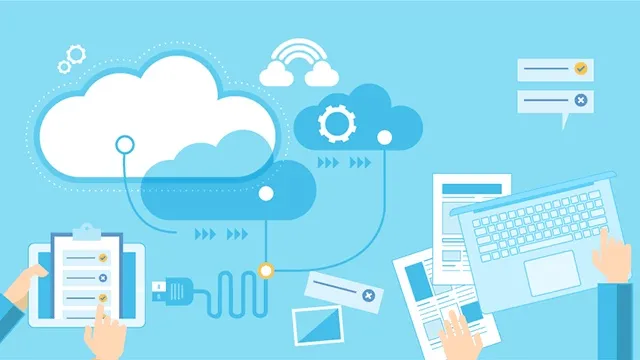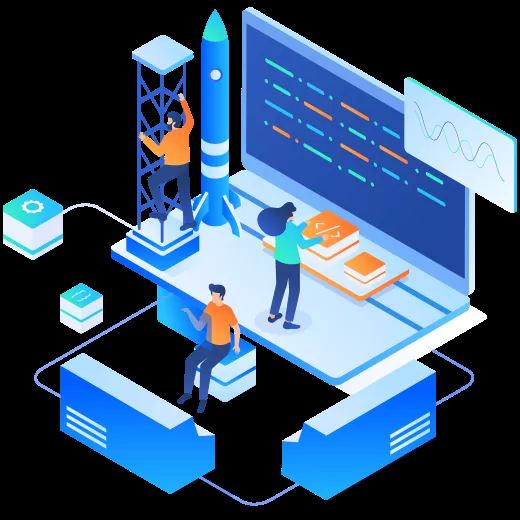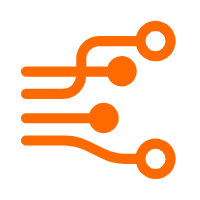The Alibaba Cloud 2021 Double 11 Cloud Services Sale is live now! For a limited time only you can turbocharge your cloud journey with core Alibaba Cloud products available from just $1, while you can win up to $1,111 in cash plus $1,111 in Alibaba Cloud credits in the Number Guessing Contest.
By Cao Kaibin
During the COVID-19 epidemic, e-commerce orders for fresh foods suddenly surged. For example, Yipinshengxian (Yipin), the leading fresh food e-commerce enterprise for residential communities, received more than 100,000 daily online orders. This is good news for the e-commerce enterprise but a huge challenge for the IT department and the core business systems.
A sharp increase in the number of visits causes multiple unpredictable backend problems, such as slow performance; failures to access websites, apps, and mini-programs; order errors; and payment failures. Any of these problems may cause great harm to the business, user experience, and brand. If IT personnel fail to solve these problems in time, the consequences may be devastating.
As the person in charge of Yipin's IT infrastructure, Yang Hang was extremely aware of this. Fortunately, Yipin got through this unprecedented challenge. His experience may illustrate best practices for e-commerce enterprises and even internet companies as they work to cope with sharp increases in business volume and achieve controllable and healthy operations.
To cope with the rapid expansion of its business, Yipin set up its R&D team at the end of 2018. At the same time, Yipin began to purchase a large number of third-party systems, including enterprise resource planning (ERP), warehousing, and supply chain systems.
These systems were locally deployed, and Yipin purchased servers and used the Oracle database. The core business logic of these third-party business systems was written in the Oracle database.
However, in case of any system problem, the technical personnel of Yipin required the assistance of the relevant technical personnel, such as database administrators (DBAs) of the system manufacturers.

As Li Guangwang, a senior database technical expert at Alibaba Cloud and the head of the Database Autonomy Service (DAS) product line said, this is a typical scenario faced by many e-commerce enterprises.
In such traditional database architectures, any system problems can be solved only with the help of the technical staff of manufacturers. However, the technical staff of manufacturers cannot immediately respond or solve the problems onsite. In this case, it takes a long time to solve a problem. This is intolerable for internet enterprises that have to process high traffic volumes every minute.
For example, Yipin once failed to submit the store inventory results. Yipin's technical personnel soon found that the Oracle database of the system was blocked. This was a problem with the third-party system, and the technical personnel of Yipin could not solve it. Only the DBA of the ERP manufacturer could solve it. The problem was solved, but only after a long time, which resulted in great losses for Yipin.
Such situations make e-commerce enterprises feel that they are controlled by manufacturers. The enterprises have their own technical personnel but cannot solve system problems. They must find a way out of this dilemma. Otherwise, the reliability and stability of e-commerce business systems will be uncontrollable.
According to the practices of internet enterprises such as Alibaba, JD.com, Baidu, and Meituan, the basic solution is to develop their own core business systems.
If an internet enterprise continues to use a third-party system, there will always be uncontrollable risks. Its core business system is its lifeblood and must be absolutely under its control. Therefore, internet enterprises must develop their own systems.
In addition, each internet or e-commerce enterprise has a unique supply chain mode and operation mode. It is difficult to find third-party systems perfectly suited to their needs.
For example, Yipin used several third-party systems in its first three years, frequently changing because these systems could not meet its needs. It is very hard to change a business system. This is why Yipin decided to set up its own R&D center and system to develop its own core business system. Yang Hang even told SOFT6.COM that Yipin aimed to develop all its own systems, including financial software.
In the cloud era, internet enterprises must use cloud-native technologies for their proprietary systems in order to effectively address the unsuitable architecture of traditional business systems such as ERP and develop systems that fully meet their own needs.
All senior architects know that the key to ensuring the controllability of business systems lies in the databases. Which databases should be used to ensure completely controllable proprietary systems?
Everyone has come to the realization that Oracle databases are not the answer. There are several reasons for this: Oracle databases are technically uncontrollable and too costly. Also, Oracle provides only a few cloud database versions or cloud O&M and management tools.
Enterprises have realized that cloud databases must be used to migrate databases to the cloud. According to Gartner, an authoritative market research institution, cloud databases are the future. By 2021, it is estimated that cloud databases will account for 50% of the total database market, and, by 2023, 75% of databases will run on cloud platforms.

More importantly, due to their slow expansion and low efficiency, traditional databases cannot meet the needs of business systems for real-time performance, stability, and rapid expansion. For example, Yipin's daily online orders exceed 100,000 during the epidemic. Traditional and locally deployed databases cannot implement elastic scaling to cope with such explosive growth. However, this is the strength of cloud databases.
Cloud-native databases often use distributed shared storage, and storage and computing are separated and decoupled to facilitate separate elastic scaling for storage and computing and achieving extreme elasticity. Cloud databases are superior to locally deployed databases in terms of elasticity, high availability, and load balancing. In addition, cloud databases can be used on-demand and billed in pay-as-you-go mode, which is much attractive for internet enterprises. Besides, using an on-premises database to supply such high availability is costly.
Yipin's servers and other hardware infrastructures have been fully migrated to the cloud. Migrating its systems and databases to the cloud is also essential. Initially, Yipin purchased its business system from a third-party manufacturer and deployed it in an on-premises data center. Any system problem had to be solved by the technical personnel of the manufacturer.
Now, all of Yipin's businesses have been migrated to Alibaba Cloud and use cloud databases. This allows the infrastructure team led by Yang Hang to control the business system and databases.
As they use more proprietary systems, internet and e-commerce enterprises face greater challenges in database O&M and management. The same is true for Yipin. Yipin's technical O&M team must focus more on the R&D of an internal O&M efficiency platform in order to gradually reduce DBAs and O&M costs and control security risks.
In addition, DBAs will shift to more valuable work, such as developing efficiency tools and autonomous service tools. Proprietary systems are quickly iterated. Without the autonomous service of databases, these systems cannot implement the automatic and intelligent O&M and require a large number of manual O&M operations, greatly increasing the probability of online system failures.
Autonomy and intelligence are the development goals of Alibaba Cloud DAS. Originating from CloudDBA in 2014, DAS is a tool designed for internal R&D personnel. In 2016, Alibaba Cloud upgraded and commercialized it as a cloud service. In 2017, Alibaba Cloud empowered the service with autonomous capabilities and began to further improve it based on Alibaba scenarios and technologies. By the end of 2019, it was officially renamed as DAS.

As the head of the Alibaba Cloud DAS product line, Li Guangwang has a deep understanding of this field. Drawing on Alibaba's own experience in large-scale database O&M and the Machine Learning Platform for AI technology, Alibaba Cloud DAS has achieved auto-perception, auto-diagnosis, auto-repair, and auto-security capabilities, making it a self-driving solution for databases.
It was the DAS that moved Yang Hang.
According to Yang Hang, all of Yipin's proprietary systems were based on cloud services provided by Alibaba Cloud. There are two reasons why Yipin chose Alibaba Cloud. First, Yipin was the infrastructure as a service (IaaS) user of Alibaba Cloud. Since Yipin's entire hardware infrastructure was already on Alibaba Cloud, Alibaba Cloud was the best choice as a cloud database provider.
More importantly, Yipin appreciated the comprehensiveness of the Alibaba Cloud's database ecosystem. For Yang Hang, the convenience of database O&M and management and the total cost of ownership were important factors for choosing a cloud database vendor.
To reduce costs and man-made errors, internet and e-commerce enterprises should not invest too much manpower in database O&M.
Yang Hang's team compared the database O&M and management tools in the domestic market and finally chose Alibaba Cloud DAS due to its distinct advantages. For example, Alibaba Cloud DAS has more functions than the similar products of other Chinese vendors and better console and billing functions than foreign vendors. In addition, the Alibaba Cloud database team efficiently handles the problems reported by Yipin, and the product quality is high. Yipin is very satisfied with Alibaba Cloud's service support.
For e-commerce enterprises such as Yipin, database O&M efficiency tools should be able to fully integrate the O&M team's workflow with the R&D team's development process. Thus, Alibaba Cloud DAS should cooperate with Yipin's internal efficiency platform to empower R&D personnel. For example, once an ApsaraDB reports an alert, DAS should directly transfer the problem to corresponding R&D personnel in order to improve efficiency. In this way, Alibaba Cloud DAS will reduce the troubleshooting time from 10 or 20 minutes to only several minutes, which significantly improves efficiency.
With Alibaba Cloud DAS, Yipin requires only a few O&M technicians for its proprietary systems. Through cloud migration and in-depth use of cloud databases, Yipin reduced its overall database costs by 40% to 50%.
In addition, this has allowed Yipin to develop best practices in cloud-native technology and proprietary systems with cloud databases. These practices serve as a reference, showing other companies how to cope with unknown factors and achieve controllability in the digital world.
Do you also want to experience this autonomous solution?
Click here to try out DAS.
Intime Abandons Traditional Databases for PolarDB, Increasing Its ROI by More Than 200%
ApsaraDB - October 27, 2020
Alibaba Clouder - February 7, 2021
Alibaba Cloud Product Launch - January 22, 2019
Alibaba Cloud Community - June 16, 2022
Alibaba Cloud MaxCompute - September 18, 2018
Alibaba Clouder - July 1, 2020
 Black Friday Cloud Services Sale
Black Friday Cloud Services Sale
Get started on cloud with $1. Start your cloud innovation journey here and now.
Learn More Data Transmission Service
Data Transmission Service
Supports data migration and data synchronization between data engines, such as relational database, NoSQL and OLAP
Learn More Hologres
Hologres
A real-time data warehouse for serving and analytics which is compatible with PostgreSQL.
Learn MoreMore Posts by ApsaraDB